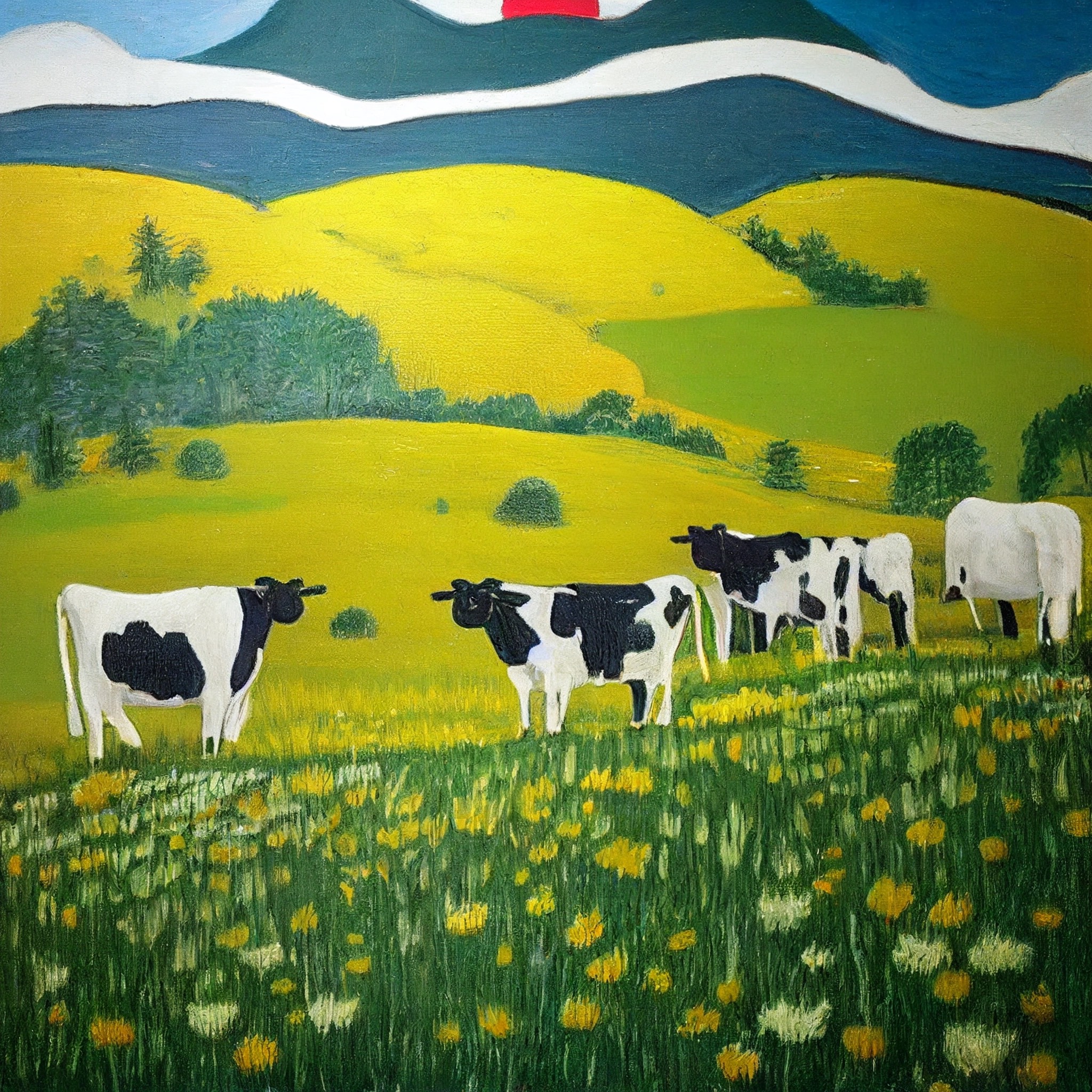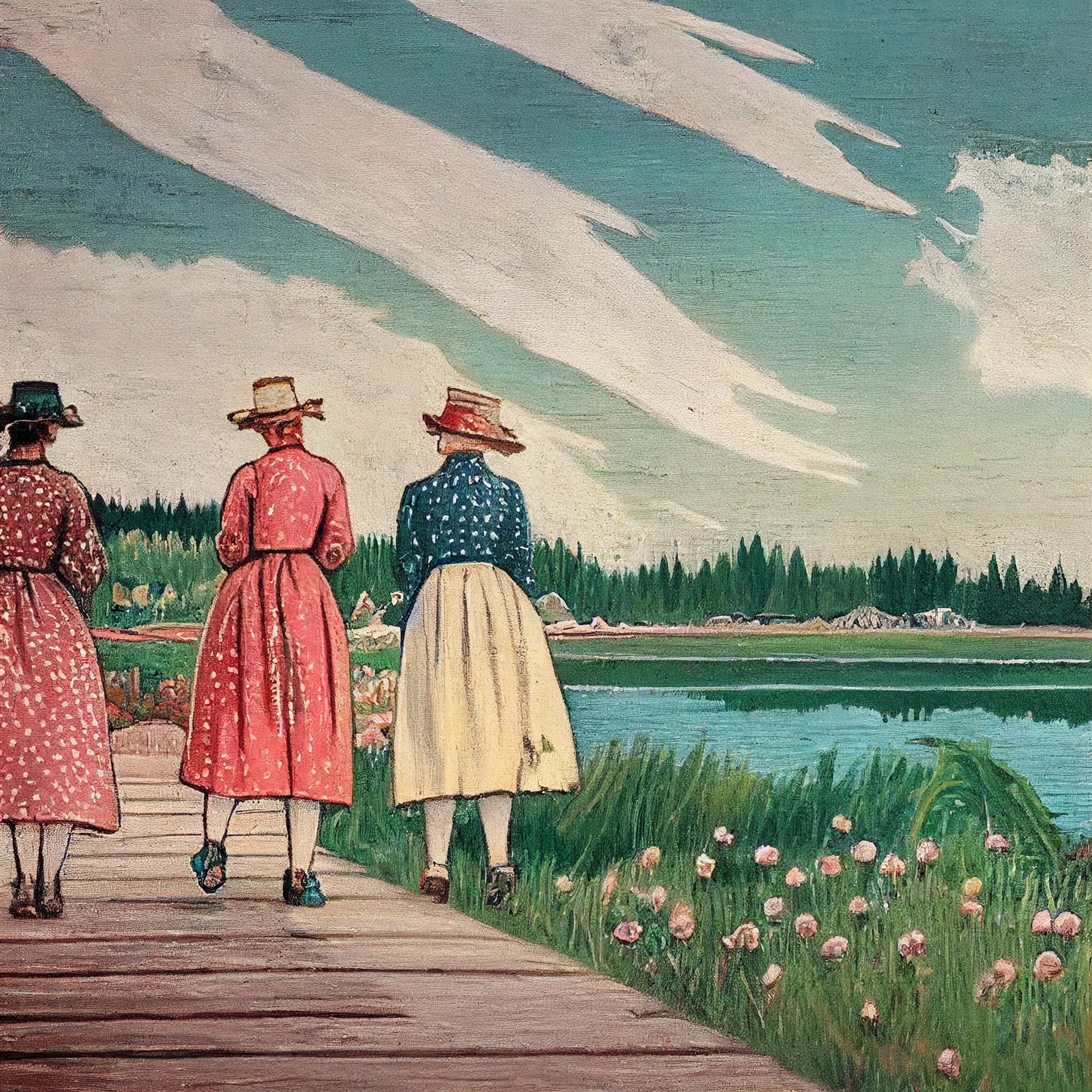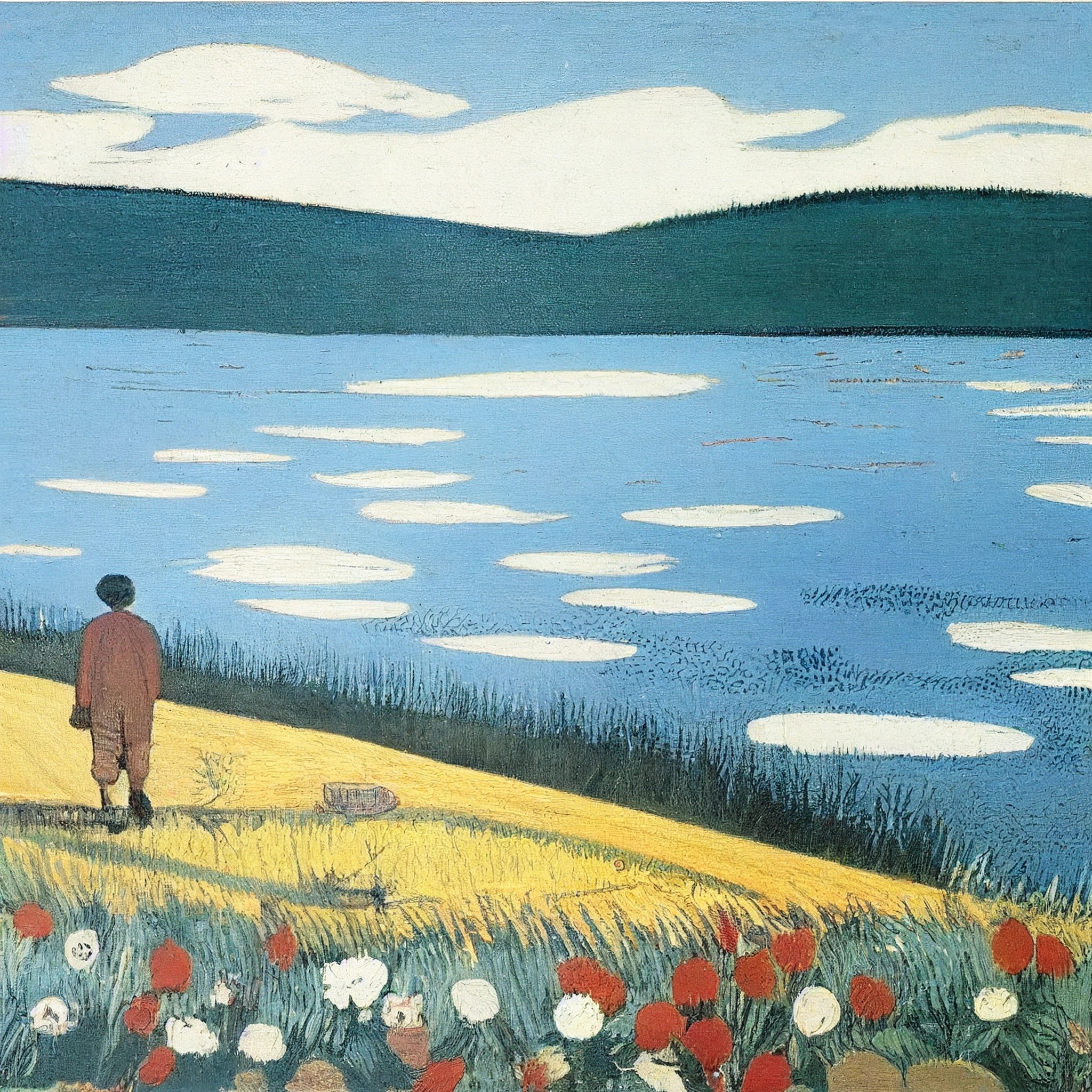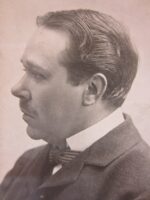Translated from the Swedish by Jolene Armstrong
I had not seen my old fellow student, the vicar Torelius in Lerkila, for ten years, when recently, on a warm summer evening, we bumped into each other on the sidewalk outside The Grand. We had been in the same hall at Uppsala University, where I studied, I do not remember what, but probably philosophy or law, but he read the Dimmen[1] and was a very serious young man, except on Saturday evenings. He had regular habits, and was punctual in everything, even in terms of the frenzy of youth. He, by the way, had a good head, and since he also descended from a good old ecclesiastical family that had more than one bishop, if not in an uncle, or at least a titular uncle, he swiftly arrived at success, so that at a fairly young age, he was in possession of a good parish. All this had given him a predominantly bright and harmonious conception of Christianity, and when I now saw him coming towards me on the curb with outstretched arms, as if it had only been a week since we parted outside the old Taddis restaurant, by his facial expression I would have thought that it was Saturday night, had I not known it was Friday.
We sat down at a table under the café’s large canopy and allowed ourselves to be served various refreshments. As it turned out, we arrived at the bottom of our old memories of being students more quickly than we had actually anticipated, and our conversation was mostly about the present. I was told that he was already married for the second time and that his second marriage promised to be as happy as the first would have been if our Lord had wanted it to be.
He talked about his beautiful life in the country, which he did not want to exchange for anything else in the world. He was fond of his parishioners, and he believed that they also valued him. We also briefly touched upon the religious movements of our time, and I asked, among other things, if he was much troubled by dissenters in his congregation.
—You mean the nonconformists? he said. No, I cannot say that. That is, I cannot deny that they afforded me some discomfort at first. It was bothersome when the Archbishop came on his visitation and saw that more people poured into the chapel than into the church. As I was new in town, my predecessor took the blame for it, and since then, the circumstances have changed for the better. There is now a more conciliatory mood, and even though I cannot really say that I have more people in the church than before, there has at least been a reduction in the chapel, thank God—Well now, there are special reasons for that by the way…
He broke off and looked a little mysterious, but I asked no more, and we sat in silence for a minute. On the sidewalk, in front of us, strolled the occasional skinny Yankee among the obese Stockholmers, and from the Strömparterren, rang the last bars of the Habsburg house folk song; it left behind a strange stillness, and right through the silence rose the lowing of a cow. It came from one of the ferries that had just landed at the quay; soon, one could hear the cow trampling over the gangway, and there came another, and there was a small peasant man walking past, leading two cows behind a rope.
—Those are beautiful cows, said the vicar, though not as beautiful as mine. I have the fattest and most beautiful in the whole parish. But cows must be seen in a green landscape to be understood. There is nothing that I like more than my cows, of what is of this world, of course. But that is, of course, for…
—Special reasons?
—Right. I have to tell you the whole story, about the cows and the nonconformists and my marriage. It is all related.
Here, you shall hear it:
You may remember that it was very hot last summer, especially before midsummer. One day, I went out for a while on my grounds, as usual. I walked along the ditch banks, bathed in the sun’s rays. I walked across a meadow, where my people were cutting the hay, and came to the pasture where the cows went to graze. You cannot imagine how beautiful they were, there through the birch trunks! I scratched them on the forehead and talked with them as I usually do, both with Majros and Sommarblomma and Vitkullan—that is my bell cow, she has no horns and is as white as milk—and the bull Hercules, who has the strength and devotion associated with that name. There is nothing tamer than brute bulls if only one doesn’t tease them from the outset. I talked with them all, and they answered me as best as they could and bellowed after me when I walked away from them. I even talked with a devout tailor, whom I met down the hill, and who was a great light among the revivalists in the parish. I’ve even heard it being said that he used to cast out devils. Well, he answered me, politely but curtly, of course—and so I came down to the lake. It was smooth and calm. I generally follow the principle of never swimming before midsummer, but it was only a few days away, and I was sweaty and hot. I could not resist it. In a jiffy, my clothes were off; I jumped into the water and swam out. But it was colder than I had thought, and I was not long in the lake. As I was getting out, I could see all the cows approaching me. I called them, they came closer, but slowly and carefully. Vitkullan went first, and Hercules kept close to her. When they were within ten or fifteen paces, I suddenly saw from their facial expressions that they did not recognize me, indeed, they didn’t even want to recognize me as a human being! And, in Hercules’s eyes, I seemed to see something that I had never seen there before. I confess that I suddenly became terribly afraid. And if you want to know what the meaning of panic and fear is, just stand stark naked in front of a dozen large beasts with sharp horns—you should know that I have eleven cows and a bull—and with the lake behind you! I, for one, became half-mad from intimidation and I started running along the beach. And then, the cows came alive. I heard them behind me coming at a sharp trot. What was I to do? I got hold of a tree branch, which was rather low, and swung myself up in the tree.

Artwork by Jolene Armstrong
At that moment, the swarm was already around me, and Hercules snorted at me and gored his horns against the tree. In any case, he could not reach me, and fortunately, it was so hot that I did not catch a chill, even though I otherwise have a tendency to get a chill in the stomach. I tried to reason with them, but there was no chance. Vitkullan had only disdain for answers. Majros gazed angrily from under her fringe, and Hercules was undeniably disturbed. And, in a way, it was their right. How could they have imagined that this foreign white animal, who fled and climbed up a tree at the sight of them, who neither had black clothes nor glasses nor straw hat with a wide brim, was identical to their master and good friend! He must, of course, necessarily be their enemy, or in any case a foreign, ridiculous, and obscene phenomenon that should be fought off.
Fortunately, however, such violent agitation is seldom prolonged, at least not with the cattle. After a while, the lush grass on the ground took up their attention, and I hid as best as I could in the foliage, hoping to be forgotten. The animals began to spread out, and I began to hope for deliverance—the coarse bark scratched horribly on my skin— when I heard the chatter and laughter of girls’ voices. It was the schoolmistress and the devout tailor’s two daughters—all three of course revivalists—who came with towels in their hands to swim! I cannot deny that I whispered to myself: Now all hell is about to break loose! I only hoped that they would not see me, and I promised myself to turn my eyes inland. Well, for the most part, there wasn’t much to see, with the exception of the youngest. For they were so agile, that I hardly had time to think over what was to be done when the youngest girl already had one foot in the water and all of her clothes neatly and properly laid on a stone. To be honest, I didn’t dare to turn my head away for the fear of rustling in the foliage. Well, all three girls soon splashed in the lake, and I sat as quietly as a small rat in my tree. I had become accustomed to it; the bark didn’t sting my poor skin as badly as it did before, and I began to resign myself to my fate and hope for a happy ending to the story. That’s also how it ended at last, though not in the way I had imagined.

Artwork by Jolene Armstrong
The girls came out of the lake again, but the schoolmistress happened to disembark a bit further away, just where my clothes were, of course. She comes running and tells of her discovery: there is men’s clothing over there, and there’s a man bathing nearby—but where is he, he must have swum far out! They dress hurriedly; they stand and listen. Nothing is heard, and no one is visible in the lake. Hopefully, he hasn’t drowned and who can it be? They had to take a closer look at the clothes. The youngest is the most courageous—she sneaks over there and comes back and reports: it is the vicar! What if he has drowned? “What about his soul?” wonders the schoolmistress. “Oh, the nonsense with the soul,” responds the youngest girl, at once full of malice and on the verge of tears, “I went and studied with him three years ago, and I really liked him even though I felt that he did not have the right beliefs. But our Lord is probably not as mean as you!”
All at once, they suddenly became silent and began staring as if bewitched into the tree. Then the three voices were shrieking, and the next moment they were swept away by the wind.
I finally came down from the tree and got dressed. I was relatively calm. And you must admit, that I didn’t have much more to lose. Never has a modest servant of the Lord been so unjustly in such a fatal situation! It was not long before the tailor came to the scene with two other revivalists. They looked pretty bleak, all three of them, but the tailor’s eyes were lit by an inner fire. You can imagine his devilish delight at the thought of getting to cast out the devil from none other than their legitimate pastor, the parish vicar! Fortunately, however, I had already put on my clothes and with them the dignity for which I now had such good use. Before the tailor even had time to open his mouth, I said to him that I would pay him a visit in the afternoon and explain everything, upon which I dismissed them with a gesture and also walked away with a firm stance.

Artwork by Jolene Armstrong
As luck would have it, in the afternoon, I met the girl first. She stood by a bush in the garden, eating unripe gooseberries. Her father had a nice homestead with an agreeable garden; he had also been blessed in the material sense and had saved well and bought this homestead. I explained everything to her, and the loving child believed me immediately. She was the only sensible one of them all. At first, she thought that I had gone crazy because I climbed naked into a tree; but when she heard me speak and saw that I had my sanity intact, she believed me right away. She was a simple and artless girl, and what had passed didn’t seem as terrible to her as I had imagined. It is certainly true, as some have said, that women are closer to nature than men, and most of the time, they feel far less shame about natural things than we men, though we always believe the opposite when we are young and do not know them.
—Well, what about the tailor?
—He never believed me. But that does not mean that he was not flattered when I proposed to marry his daughter a few months later. You’ve probably already realized that it is she who is now my wife. But my father-in-law still believes that I climbed naked into a tree to see the girls swim. Nevertheless, for the sake of the family, he considers this a very natural and pardonable weakness of the flesh, for which I have also completely made amendments. But among his fellow parishioners, his indulgence towards me brought surprise and discontent, and that is why the meetings in the chapel, which he and his relatives manage, are no longer as numerously visited as before.
It was already late when we took our leave. When we parted, we shook each other’s hands cordially, and I wished him all the best both for the true Church’s victory and for the favorable turn of events for himself.
—Thank you, he said, I’m already happy. It is true that my wife is not at the same level of education as me, but she has a good heart. And it also made a certain impression on me that she laid her clothes so neatly, while the others had thrown their’s helter-skelter.
Note:
[1] An ancient degree/exam in Uppsala called Dimissionsexamen—teoretisk teologisk (ämbets-) examen—a theological degree.
Also, read a Hindi fiction, written by Mamta Kalia, translated into English by Rituparna Mukherjee, and published in The Antonym:
Follow The Antonym’s Facebook page and Instagram account for more content and exciting updates.



























0 Comments